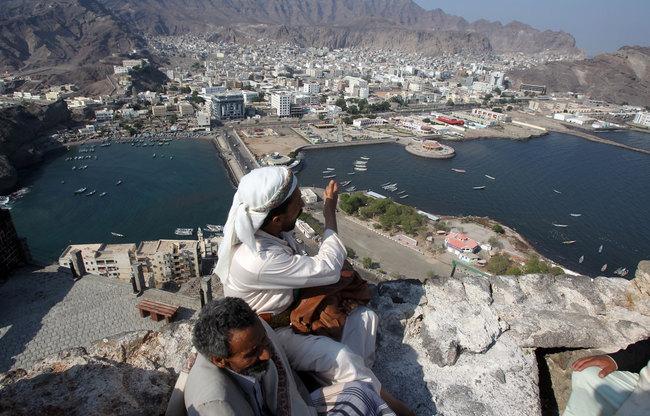
(AFP PHOTO / MOHAMED EL-SHAHED)
The trial against five Al Jazeera journalists and 15 others for spreading false news and creating a “terrorist media network” was postponed for a sixth time on Saturday afternoon.
Referred to as the “Marriott Cell” by the prosecution, Al Jazeera English bureau chief Mohamed Fadel Fahmy, correspondent Peter Greste, producer Baher Mohamed, five students, and 12 others being tried in absentia were denied bail by the Cairo Criminal Court at Tora, and will next stand trial on 15 May.
The students have denied any involvement with Al Jazeera.
According to media sources in the courtroom, Fahmy was allowed to directly address the judge during the session, telling him that interviewing Islamists was part of his job as a journalist. He also said that he had close ties with the army and state intelligence through his work.
Also on Saturday, imprisoned Al Jazeera Arabic journalist Abdullah Elshamy was ordered detained for an additional 45 days. Elshamy was initially arrested while covering the violent clearing of the large pro-Mohamed Morsi sit-in at Rabaa Al-Adaweya Mosque on 14 August. He has been held since without charges. Elshamy has been on hunger strike since 21 January to protest his detention, and family members say his health is deteriorating rapidly.
Saturday coincided with World Press Freedom Day. Marking the occasion, British Foreign Secretary William Hague issued a statement, in which he said he is “deeply concerned by the harassment and detention of journalists in Egypt”.
Fahmy and Greste were arrested from two rented suites at the Marriott Hotel in Zamalek, which they had been using as a base for operations, on 29 December. Egyptian producer Baher Mohamed was arrested on the same night from his house in suburban Cairo. The five students were arrested on 31 December and 2 January.
Greste, an Australian, is one of four foreign defendants named in the case. The other foreign defendants are Sue Turton and Dominic Kane, who have worked for Al-Jazeera in Cairo previously. Dutch journalist Rena Netjes has never worked for Al Jazeera but met with Fahmy at the Marriott hotel. She was allowed to leave Egypt following discussions between the Dutch embassy and the foreign ministry.
The Qatar based news network Al Jazeera has been accused by the Egyptian government of distorting the image of Egypt and spreading false news. The network is viewed by the Egyptian government of being overly sympathetic towards the Muslim Brotherhood, which it declared a terrorist organisation on 25 December.
The arrests and detention of journalists in Egypt has garnered international ire. The US State Department called the charges against the Al Jazeera journalists “spurious”, while the White House, the European Union, the United Nations and the Australian government have all expressed their unequivocal condemnation, and called for the journalists’ release.
Egypt has experienced an increasingly severe crackdown on voices of dissent. The Committee to Protect Journalists has ranked Egypt the third most dangerous country for journalists after Syria and Iraq. The country ranked 159th out of 180 in the 2013 Reporters Without Borders “Press Freedom Index”.
In previous interviews, Al Jazeera said it no longer has staff members based in Egypt.

